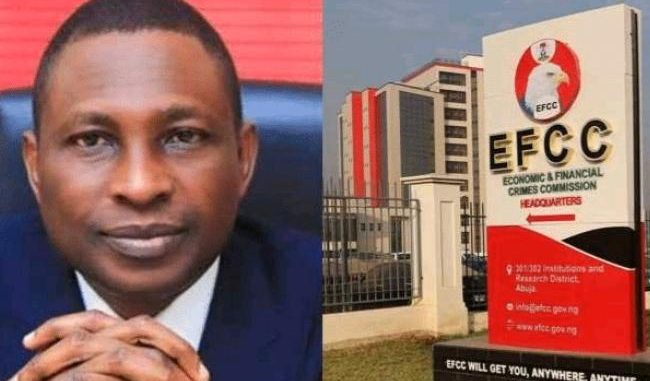
EFCC Chairman Ola Olukoyede, who made the revelation in an interview he shared on his X handle on Saturday, stated that most houses in Asokoro and Maitama, Abuja, are owned by civil servants, suggesting widespread corruption.
The Economic and Financial Crimes Commission (EFCC) has shed light on the pervasive nature of corruption in Nigeria’s system, with civil servants playing a significant role.
EFCC Chairman Ola Olukoyede, who made the revelation in an interview he shared on his X handle on Saturday, stated that most houses in Asokoro and Maitama, Abuja, are owned by civil servants, suggesting widespread corruption.
Asokoro and Maitama are both upscale districts in Abuja.
Corruption is not limited to the public sector, Olukoyede noted, as the private sector is equally culpable. In one notable case, the EFCC investigated a ministry and discovered N33.7 billion had been stolen. Surprisingly, only N3 billion was traced to the Minister, while the remaining N30.7 billion was linked to civil servants, including directors of finance and procurement.
This disparity highlights the significant role civil servants play in corruption, often more so than politicians.
“The gamut of money stolen by establishment people far exceeds what politicians have stolen,” Olukoyede stated.
The EFCC’s findings underscore the need for a thorough examination of corruption in Nigeria, particularly within the civil service.
In the interview watched by Gistcore on Sunday, the EFCC boss said: “There is no doubt that we have corruption in the public service, but I will tell you also that the private sector is as bad as the public sector from all the investigation work we have done.
“So, but coming to public service … we have discovered that it is extremely difficult for a political class to steal money without the connivance of – from our own point of work, we call them establishment people, they are always there, political appointees will come and go these guys are always there and I will give you the typical example.
“We investigated this particular ministry, the Minister then we were prosecuting him, we discovered that about N33.7 billion was stolen only N3 billion we were able to trace to the Minister and the remaining N30.7 billion were traced to the director of finance, director of procurement, director of this and director of that, the establishment people.
“So when you look at the gamut of the money stolen by the establishment people, it is much more than what we the politicians have stolen and that’s the truth, Nigerians will realise that.”
Asked why didn’t they tell Nigerians where they kept the money in Abuja, he said, “No if you trace money to people and they use it to buy house in their name and you discover the money in the accounts of their children and then their cronies, and in the cause of making statements they didn’t deny that the money belong to them, if they had mentioned the name of the Minister in the cause of making statement, we would have said okay they were just accessories, either two or after the facts.
“But when they owned up, you know the moment you catch them and you do your diligent investigation with – documentary evidence – it would be difficult for people to deny.
“Minister just has N3 billion out of N33.7 billion. It was only N3 billion that the commission traced to the Minister the other – look statistics have shown because we carry out survey in the real estate in Abuja, most houses in Asokoro and Maitama are owned by civil servants.
“Yes, statistics have shown that we have evidence to prove that. We have discovered that and it’s important for us to beam our searchlight on the establishment people, on the core civil service sector – permanent secretaries, directors and generally the civil servants.”
The EFCC’s investigation methods involve tracing money to individuals and identifying assets, such as real estate, that have been purchased with illicit funds. According to him, in some cases, suspects have owned up to possessing stolen funds, providing valuable evidence for the commission’s cases.
The EFCC’s efforts aim to expose and address corruption, promoting transparency and accountability in Nigeria’s public and private sectors.
Leave a Reply